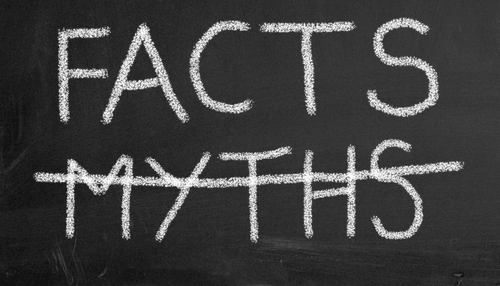As technology evolves, so does the way we do things. One thing that always changes is how SEO works. There has been many changes from the past to present that you should be aware of. Here are 7 SEO myths that will help clear up all the questions that many people have asked about.
Myth #1: SEO is a one-time deal
This couldn’t be further from the truth. Many people who are new to SEO and looking to hire someone to optimize their website need to understand is that SEO is an on-going process, year around. Google changes its algorithm typically every four months and you have to essentially start over. If you stop doing SEO campaigns, your rank will quickly plummet depending on if you were relying on a PPC campaign or backlinks. A good SEO professional will constantly be working on optimizing and researching new keywords or techniques to ensure you stay ranked at the top.
Myth #2: More backlinks = higher rank
Before we begin, backlinks are incoming hyperlinks that link from one page to your website. Backlinks are essential for ranking higher. However, it depends more on the quality of backlinks than quantity. It is more successful to have legitimate backlinks than using spinners and creating backlinks that are lacking in quality. Google can and will catch on and often penalize your website.
Myth #3: More keywords = higher ranks
A keyword is the term used to define the word or phrase entered into a search engine such as Google, Bing or Yahoo to retrieve relevant webpages. Again, more is not always better. Keyword stuffing is penalized by Google. A good rule to remember is that you usually want 1-2 percent keyword density, so 1-2 per 100 words.
Myth #4: Successful SEO is all about ranking high
This is not necessarily true. Higher rankings obviously are important in a good SEO campaign, but you might rank high for a certain term or keyword and not generate any conversions from it. The end goal is having a good click-through-rate and converting on those clicks. It’s a good idea to define what your end goal will be for an SEO campaign to truly measure your success.
Myth #5: On-page SEO is all my website needs to rank higher
Incorporating keywords onto your website isn’t the whole solution to rank higher. You need good on-page SEO and to optimize your site and well as off-page optimization.
Myth #6: Small businesses don’t need SEO
This is far from the truth. If you’re a small business, wouldn’t you want to grow? Don’t you want more people to know about your good or service? SEO is a wonderful investment for a small business and can help open its market to more potential consumers. Using SEO as a small business can help you compete against larger businesses as well or find a niche.
Myth #7: Your H1 is the most important on-page element
Your Header 1 is what H1 refers to, and these days it isn’t too important. Feel free to use whatever header tag, but present your most important concepts near the top of the page. You want your page easy to read and interpret for users, it only makes sense to reel readers in with your most important concepts near the top of the page.
